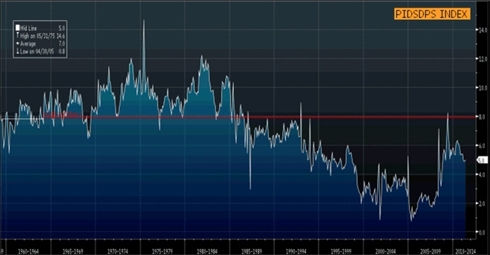At the top of the agenda, many commentators have if there will be a new bust in 2013 or not. At the same time, the Fed's policies are being ciriticized harshly day by day. So the question is whether the US and the Fed (of course) really made mistakes? If they did, what are all these mistakes all about?
To be honest, we should say that the US economy hasn't reached the expected growth point, in contravention of all %10 deficit rate and money-printing processes of the Fed. Another fact about the Fed is that they are extremely dissappointed with the results, just because they have been so optimistic about the taken measures which should have already provided a quick recovery. It also has been expected that the unemployment rate would have dropped to 6.8% as of the beginning of 2011. The actualized rate, which is 9.2% level, is showing that Fed, also government, still do not have an point-black recovery program.
The aggregate indebtness is three times much more than GDP. This finding proves that the US economy is in a transformation process that consist of deleveraging i.e. the economy pays the debt. The image below, showing us the private savings/GDP ratio, at the same time, is an indisputable indicator for explaining the point. In 2008, when the big financial crisis outcropped, the private savings / GDP ratio was nearly zero-level, which is about 5% now. In other words, the consumption that is needed for a recovery, is discreasing. These all are why the economy is not growing. In addition, cooling measures that to be taken by China, is inventing another danger signal for US economy, inasmuchas, S&P500 companies obtain %40 of their profits from the operations in China, and other emerging economies.
The aggregate indebtness is three times much more than GDP. This finding proves that the US economy is in a transformation process that consist of deleveraging i.e. the economy pays the debt. The image below, showing us the private savings/GDP ratio, at the same time, is an indisputable indicator for explaining the point. In 2008, when the big financial crisis outcropped, the private savings / GDP ratio was nearly zero-level, which is about 5% now. In other words, the consumption that is needed for a recovery, is discreasing. These all are why the economy is not growing. In addition, cooling measures that to be taken by China, is inventing another danger signal for US economy, inasmuchas, S&P500 companies obtain %40 of their profits from the operations in China, and other emerging economies.
As of the end of May, the value of government bonds and T-Bills that Fed is holding, is 9,7 bn $, it was 5,1 bn three years ago. Thanks to debt ceiling, Fe and government have no room to make policy expansions. At this point, it is crucially important to decide the way fiscal policy goes: increasing tax rates or the public expenditures. Debate on debt ceiling is mainly concentrated on this question. In my opinion, if inflation is not a threat for economy in the short-run, an easing with fiscal poilcy would not be a big trouble.
We all know that a new quantitive easing program is nearly impossible. FED only has some less effective tools, such as discreasing the interest rates on required reserves, to run the monetary policy now.
It is nearly impossible that FED is to change its policy because of the coming-up elections, in 2012. As a result of this, FED is likely to keep on being a market-friendly institution, in addition, to cancel the elections' influence out on its policy. In my opinion, there isn't any remarkable probability of a new crisis in 2013, in other words after the elections, unlike some pessimist economists' forecasts, but, neverthless, data of markets and macra indicators must be precisely analyzed.
This post will be originally posted on SeekingAlpha.Com
We all know that a new quantitive easing program is nearly impossible. FED only has some less effective tools, such as discreasing the interest rates on required reserves, to run the monetary policy now.
It is nearly impossible that FED is to change its policy because of the coming-up elections, in 2012. As a result of this, FED is likely to keep on being a market-friendly institution, in addition, to cancel the elections' influence out on its policy. In my opinion, there isn't any remarkable probability of a new crisis in 2013, in other words after the elections, unlike some pessimist economists' forecasts, but, neverthless, data of markets and macra indicators must be precisely analyzed.
This post will be originally posted on SeekingAlpha.Com

No comments:
Post a Comment